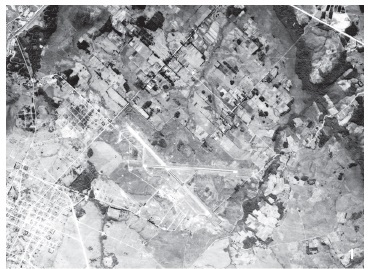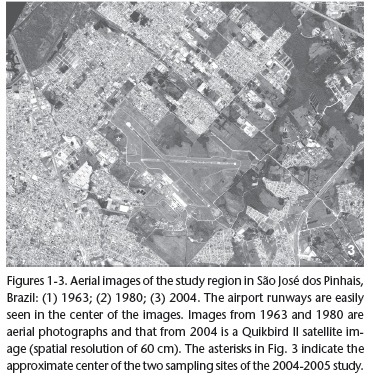Bee fauna and associated flora from a grassland site in Brazil, surveyed 40 and 20 years ago, were newly surveyed with comparable methodology to evaluate changes in the bee fauna of this site, considering that human population and urbanization has exponentially increased in the last 40 years. In general, bee species richness has declined in 22%, as well as their abundance. Some of the previously abundant species are now absent, including Bombus bellicosus Smith, 1879, Gaesischia fulgurans (Holmberg, 1903) and Thectochlora basiatra (Strand, 1910). No particular trend of differential decrease among either taxonomic or functional groups was observed, except for a minor increase in the proportion of oligolectic species and a 50% reduction in the number of large species. The first two surveys were more similar to each other in species richness per bee genus, while the two most recent grouped together based on measures of anthropogenic impact. Furthermore, the number of plant species visited by bees increased, with a pronounced increase in ruderal and exotic species. Crop cultivation, competition with honeybees and climate changes may all be related to bee decline. Nevertheless, the effects of urbanization, in particular intense land occupation and few preserved natural areas can be pointed as the main causes of species decline. Due to continuing increase in human population, increased erosion in diversity is expected. Habitat protection is an additional challenge to bee conservation in the region, with no local conservation units set aside for grasslands. State and municipal agencies should urgently consider the establishment of reserves for the few remaining patches of natural grasslands.
Apidae; Apoidea; habitat fragmentation; pollinators; species richness; urban environments









